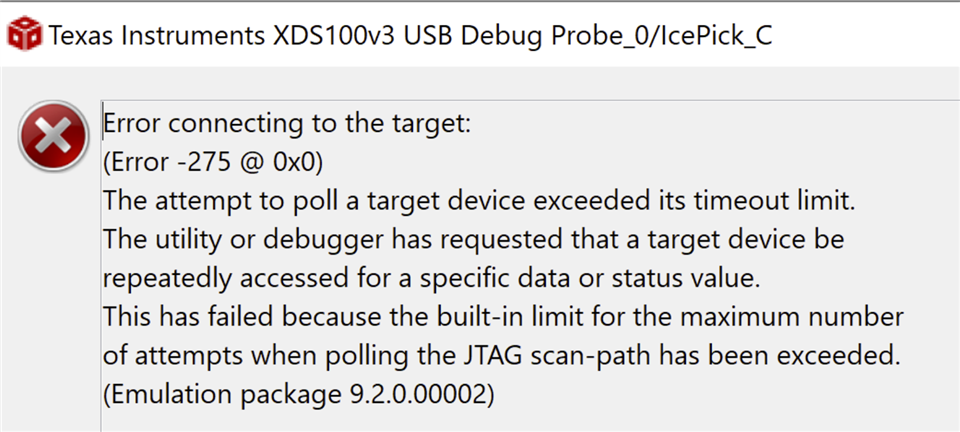Tool/software:
Hello,
I received some of our devices using a CC1352R controller in an IOT application using BLE.
The devices stopped their advertising while power supply appears stable. Upon trying to connect to the mikrocontroller I always received the same error message,

Debugging on a running target always worked in the past and when the device crushed for some reason it was at least stuck somewhere in the code.
I checked the signal from the external 48Mhz oscillator, there was nothing (0V). This explains the behaviour with the debugger, the controller seems dead.
However, when I power reset the device (forcefully unplugging the battery and connecting it again), the device starts working just fine.
Therefore I doubt that the oscillator itself might be broken.
After around 4 days it simply stops again.
We use SimpleLink CC13x2 26x2 SDK v5.20.0.52 and cannot update to a newer one.
Could this problem be caused by a missbehaving step down converter leading to a brown out? Is there a way for the mikrocontroller to handle this issue?

